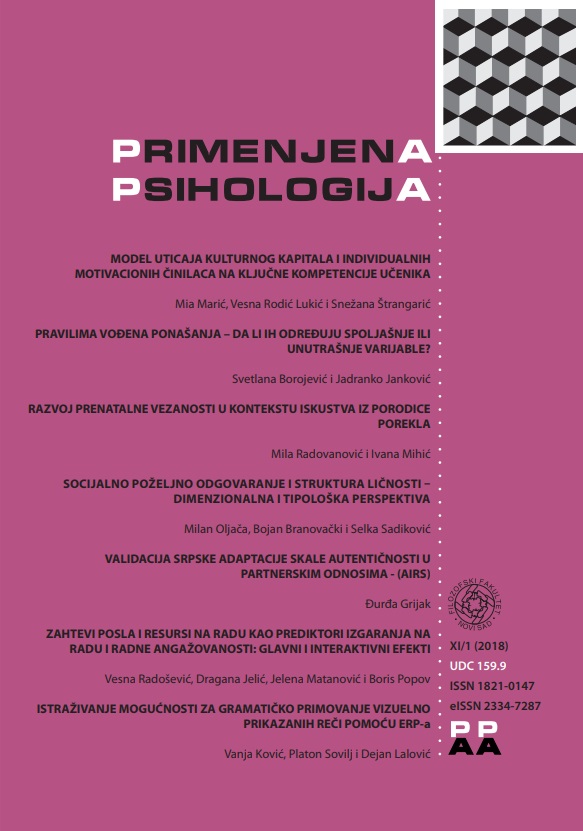MODEL UTICAJA KULTURNOG KAPITALA I INDIVIDUALNIH MOTIVACIONIH ČINILACA NA KLJUČNE KOMPETENCIJE UČENIKA
MODEL OF EFFECTS OF CULTURAL CAPITAL AND MOTIVATIONAL FACTORS ON KEY COMPETENCIES OF PUPILS
Author(s): Mia R. Marić, Vesna Rodić Lukić, Snežana Z. ŠtrangarićSubject(s): Education, Psychology
Published by: Филозофски факултет, Универзитет у Новом Саду
Keywords: anxiety; cultural capital; motivation; PISA; self-efficacy
Summary/Abstract: The main purpose of this study was to examine the relations between three forms of cultural capital (institutionalized, embodied and objectified), individual motivational factors (self-efficacy, school anxiety, intrinsic motivation, and valuing education), and key competencies of pupils. The results represent a secondary analysis of data obtained on a sample of 337 pupils who participated in PISA study (2009) conducted in Serbia. A proposed model of causal relations between cultural capital, motivational factors, and key competencies was confirmed. The obtained findings support the theory of self-efficacy, in which behavior and motivation are regarded as a product of complex interaction of individual and social factors, as well as behavior. The research confirmed that key competencies of pupils were influenced by personal characteristics, school anxiety in particular, but also by the characteristics of the socio-cultural context, such as the objectified and embodied cultural capital. It was found that cultural capital contributed to the development of personal characteristics that are predispositions for the key competencies, but it also had a direct effect on competencies.
Journal: Primenjena psihologija
- Issue Year: 11/2018
- Issue No: 1
- Page Range: 9-26
- Page Count: 18
- Language: Serbian

